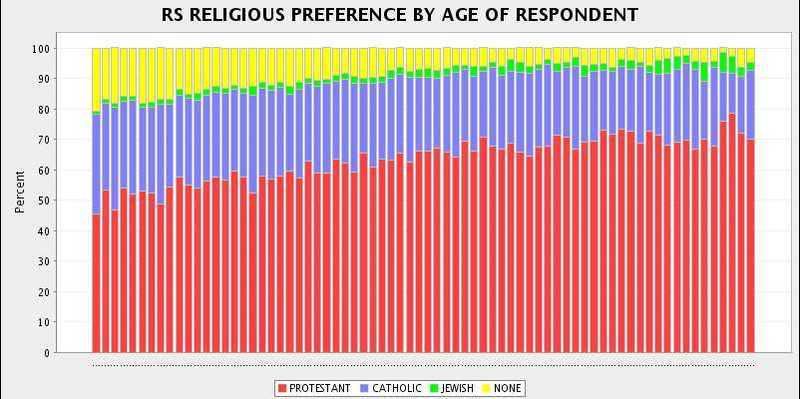- Joined
- Oct 11, 2005
- Messages
- 6,698
- Reaction score
- 1,539
- Location
- The City Different
- Website
- www.chrisjohnsonmd.com
Trinity College in Connecticut has issued their latest assessment of the state of American religious groupings. Called the American Religious Identification Survey, you can find a summary here and a complete copy (it's 26 pages) here. It compares the early 1990s with 2008 (with one additional data point in 2001).
The overall trend is a decline from 86% to 76% in Americans identifying themselves as Christians. Most of this decline comes from what's been called "mainline Protestant denominations." Fifteen percent claim no religion. Interestingly, an increasing number of Americans now prefer a non-denominational designation.
A few other tidbits. The overall number of Catholics hasn't changed much, but the axis of this population has shifted to those areas higher in Hispanics. Mormons are unchanged proportionately, but Baptists are less numerous as a percent of the population.
A summary quotation of interest: "It looks like the two-party system of American Protestantism--mainline versus evangelical--is collapsing . . . . A generic form of evangelicalism is emerging as the normative form of non-Catholic Christianity in the United States."
It's interesting reading.
The overall trend is a decline from 86% to 76% in Americans identifying themselves as Christians. Most of this decline comes from what's been called "mainline Protestant denominations." Fifteen percent claim no religion. Interestingly, an increasing number of Americans now prefer a non-denominational designation.
A few other tidbits. The overall number of Catholics hasn't changed much, but the axis of this population has shifted to those areas higher in Hispanics. Mormons are unchanged proportionately, but Baptists are less numerous as a percent of the population.
A summary quotation of interest: "It looks like the two-party system of American Protestantism--mainline versus evangelical--is collapsing . . . . A generic form of evangelicalism is emerging as the normative form of non-Catholic Christianity in the United States."
It's interesting reading.



